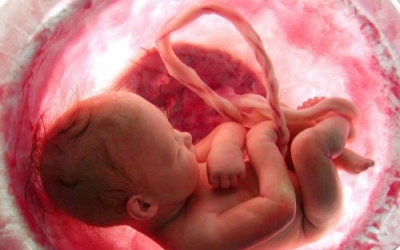- Latest news▼
-
10:23, April 19 JAMA Oncology: Urine test can help rule out high-grade prostate cancer with almost 100% accuracy, study shows

-
18:00, April 18 Daily Mail: Elderly woman in China gets infected with brain-eating amoeba

-
14:19, April 18 Obesity: exercising before breakfast helps you lose weight faster

-
10:42, April 18 The Conversation: childhood trauma can cause pathological hoarding

-
08:37, April 18 Daily Mail: Satiating food reduces cravings for sweets, nutritionist says

-
18:22, April 17 First Armenian-German Conference entitled “Heart Failure Spring School”

-
08:38, April 17 Why do kids usually recover from COVID-19 more easily than adults?

-
14:37, April 16 Daily Mail: intermittent fasting is not suitable for children and women before their periods

-
16:41, April 15 Cell: in carriers of defective BRCA2 gene, sugar consumption increases cancer risk

-
15:04, April 15 305 cases of measles recorded in Armenia so far in 2024

-
14:38, April 15 Food and Environmental Virology: tea contributes to effective coronavirus control

-
12:41, April 15 Daily Mail: vitamin A, B3 and E supplements can be dangerous

-
10:56, April 15 Diabetes Care: evening physical activity is good for the heart

-
08:27, April 15 Women are more susceptible to blood loss and death during bypass surgery than men, researchers say

-
18:42, April 13 WHO: Nigeria pioneers revolutionary meningitis vaccine

All materials
Health benefits of eating placenta 'unproven'

After giving birth, many women opt to consume their placentas for multiple health benefits. A new review of studies investigating placenta consumption, however, has failed to uncover any scientific evidence for these benefits, or that the practice is risk-free.
Some health advocates state that eating the placenta after giving birth can help prevent postpartum depression and relieve pain.
The study, published in Archives of Women's Mental Health involved a review of 10 published research studies on placentophagy - the practice of consuming placentas after childbirth. Four of these were human studies and six were animal studies deemed relevant to human practice.
During pregnancy, the placenta develops within the uterus to provide oxygen and nutrients for the baby and to remove waste products from its blood. When the child is born, the placenta is usually delivered shortly afterward.
Placentas can be consumed raw, cooked or in capsule form. Certain health advocates state that placentophagy can help prevent postpartum depression, relieve pain, aid lactation, enhance maternal bonding and provide other health benefits due to the organ retaining healthful hormones and nutrients.
Nearly all nonhuman mammals that produce placentas also eat them after giving birth. However, the first reports of human women eating their placentas did not appear until the 1970s in North America.
The healthful benefits of placentophagy have been promoted by health advocates and in the media in recent years, but what evidence is there for these benefits?
"There are a lot of subjective reports from women who perceived benefits, but there hasn't been any systematic research investigating the benefits or the risk of placenta ingestion," states study author Dr. Crystal Clark, assistant professor of psychiatry and behavioral sciences at Northwestern University Feinberg School of Medicine.
Dr. Clark developed an interest in the practice after some of her pregnant patients queried whether the consumption of their placentas would have a disruptive influence on their antidepressant medication. She was surprised to discover that the practice was more widespread than she anticipated.
"The popularity has spiked in the last few years," she says. "Our sense is that people aren't making this decision based on science or talking with physicians. Some women are making this based on media reports, blogs and websites."
Follow NEWS.am Medicine on Facebook and Twitter
- Video
- Event calendar
- Archive
- Most read
month
week
day
- Pediatrics: Hypoglossal nerve stimulation implant helps with sleep apnea 1362
- WHO: Nigeria pioneers revolutionary meningitis vaccine 1170
- One-third of women experience menstruation-related migraines, most often during premenopause - study 1136
- Women are more susceptible to blood loss and death during bypass surgery than men, researchers say 952
- Food and Environmental Virology: tea contributes to effective coronavirus control 934
- Daily Mail: vitamin A, B3 and E supplements can be dangerous 933
- Cell: in carriers of defective BRCA2 gene, sugar consumption increases cancer risk 905
- 305 cases of measles recorded in Armenia so far in 2024 897
- Diabetes Care: evening physical activity is good for the heart 887
- Daily Mail: intermittent fasting is not suitable for children and women before their periods 710
- First Armenian-German Conference entitled “Heart Failure Spring School” 504
- Why do kids usually recover from COVID-19 more easily than adults? 375
- Obesity: exercising before breakfast helps you lose weight faster 362
- The Conversation: childhood trauma can cause pathological hoarding 354
- Daily Mail: Satiating food reduces cravings for sweets, nutritionist says 328
- Find us on Facebook
- Poll





